Content
Entered keyword "elections (and polls)" yielded 364 results.
Aktualita
Sociologický ústav AV ČR, v.v.i., Centrum pro výzkum veřejného mínění, Jilská 1, 110 00 Praha 1, tel./fax: +420 286 840 129, +420 210 310 591
Aktualita
Ochota k volební účasti je u dětí rodičů s výučním listem o více jak 20 procentních bodů nižší než u dětí vysokoškolsky vzdělaných rodičů. O politiku se vůbec nebo spíše nezajímá 67 % středoškoláků. Častější diskuze o politice ve třídě nesouvisí s demokratičtějšími postoji středo...
Aktualita
Sociologický ústav AV ČR, v.v.i., Centrum pro výzkum veřejného mínění, Jilská 1, 110 00 Praha 1, tel./fax: +420 286 840 129, +420 210 310 591
Aktualita
Rovněž v průběhu září badatelé a badatelky Sociologického ústavu AV ČR vystupovali v médiích. Přinášíme krátké shrnutí některých těchto mediálních výstupů.
Publikace
Authors: Van der Veen, Robert, Lukáš Linek
The publication analyses the 2004 European Parliament elections from different angles and contains 15 studies. The book is divided into four parts. The first one is devoted to the analysis of positions of voters and parties, the second one to electoral behaviour, mainly the elect...
Publikace
Authors: Linek, Lukáš, Jan Outlý
The text analyses the candidate selection procedure in the political parties before the elections to the European Parliament. It focuses on the four main Czech political parties: ČSSD, KDU-ČSL, KSČM and ODS. Following a description of the selection procedure based on written docu...
Publikace
Authors: Rakušanová, Petra
Publikace
Authors: Plecitá-Vlachová, Klára
Aktualita
Sociologický ústav AV ČR, v.v.i., Centrum pro výzkum veřejného mínění, Jilská 1, 110 00 Praha 1, tel./fax: +420 286 840 129, +420 210 310 591
Publikace
Authors: Linek, Lukáš
Aktualita
Sociologický ústav AV ČR, v.v.i., Centrum pro výzkum veřejného mínění, Jilská 1, 110 00 Praha 1, tel./fax: +420 286 840 129, +420 210 310 591
Publikace
Authors: Linek, Lukáš, Ladislav Mrklas, Adéla Seidlová, Petr Sokol (eds.)
Eighteen scholars analysed elections into the Chamber of Deputies from different points of view. The first part of the publication is dedicated to the events that preceded the elections (primary elections within the parties, election campaign, and programmes of the parties). In t...
Publikace
Authors: Vlachová, Klára, Blanka Řeháková
Class interests play an important role in voting behaviour in the Czech Republic. The highest electoral turnout has been found among high professionals, the lowest among semi-skilled and un-skilled workers. Right-wing ODS is voted most often by middle and upper middle class (inde...
Publikace
Authors: Tomáš Kostelecký, Renáta Mikešová, Markéta Poláková, Daniel Čermák, Josef Bernard, Martin Šimon
The main goal of the book is to study spatial patterns of voting behaviour in parliamentary elections in Czechia between 1920 and 2006. The book seeks to analyse voting behaviour through studying political preferences expressed by the elections of political parties in the general...
Publikace
Authors: Kunštát, Daniel
Text outlines some aspects of people‘s decision making process during elections in modern mass democracies. Particularly, the aspect of (in)competence of electorate or, as the case may be, the problem of rationality of the political audiance that creates the public opinion....
Publikace
Authors: Matějů, Petr, Klára Vlachová
The basic structural cleavages of post-communist society should, according to Kitschelt /1992/ be aligned along two separate axes: the left-right awis and that of libertarianism-authoritarianism. The party systems in central and Eastern Europe were expected to structurate themsel...
Publikace
Authors: Linek, Lukáš
Publikace
Authors: Čermák, Daniel
This paper presents some findings about time-series evolution of trust in political institutions in the Czech Republic between 1997 and 2009. The analysis deals with two main issues: First, a comparison of time-series of trust in the Government of the Czech Republic, Chamber of D...
Aktualita
Sociologický ústav AV ČR, v.v.i., Centrum pro výzkum veřejného mínění, Jilská 1, 110 00 Praha 1, tel./fax: +420 286 840 129, +420 210 310 591
Publikace
Authors: Linek, Lukáš, Pat Lyons
Text investigates into the sources of differences in estimates of party identification in two european surveys conducted in the same time. This research helps answer question about the nature of relationship between voters and parties. Volatility in the answers about the party cl...


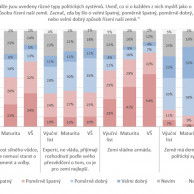
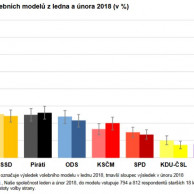

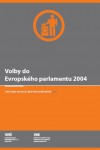
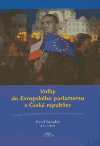
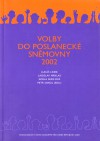



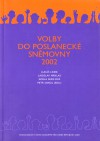
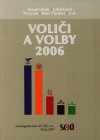
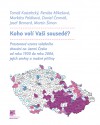

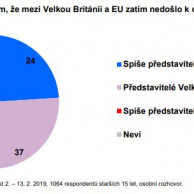
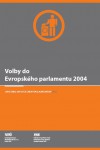
Newsletter
Facebook
X
Tweets by SociologickyNewsletter